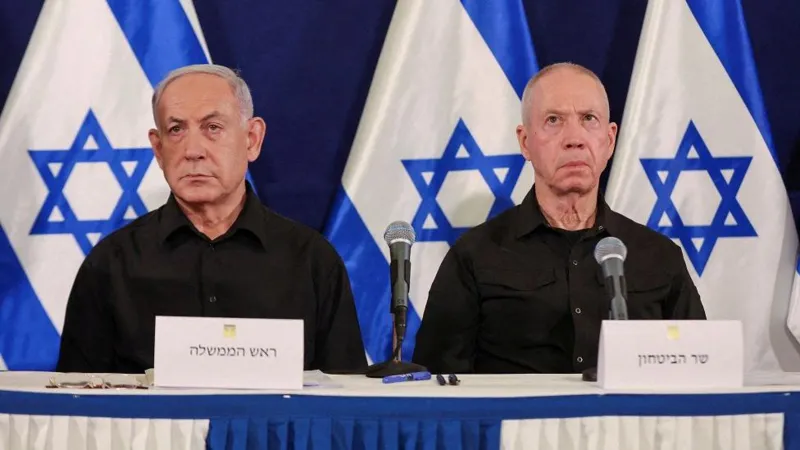Protests erupted across Israel following Prime Minister Benjamin Netanyahu’s decision to fire his Defence Minister, Yoav Gallant, over disagreements related to the government’s controversial judicial reforms. Demonstrators, including military reservists, civil servants, and opposition leaders, took to the streets in major cities, calling for Netanyahu’s resignation and denouncing the move as a threat to Israeli democracy.
Gallant, who had been a senior member of Netanyahu’s cabinet and a former army general, was dismissed after publicly opposing the government’s push to overhaul the judiciary. The proposed reforms, which critics argue would weaken the independence of Israel’s judiciary and concentrate power in the hands of the executive, have sparked widespread protests across the country for months. Gallant’s outspoken opposition to the plan had led to tensions with Netanyahu, who has been pushing for the overhaul as part of his government’s broader agenda.
Following his dismissal, thousands of protesters gathered outside the Prime Minister’s office in Jerusalem, while others staged sit-ins and blocked major highways. Some demonstrators carried signs reading “Save Israeli Democracy” and “Stop the Coup,” while military reservists expressed concerns that the judicial changes would erode the rule of law and threaten the integrity of Israel’s institutions.
The protests quickly gained momentum, drawing support from a diverse array of Israelis, including former military personnel, business leaders, and civil society groups. Many protesters viewed Gallant’s firing as a blatant attempt by Netanyahu to silence dissent and consolidate his power in the face of mounting opposition.
The decision to fire Gallant further deepened Israel’s political crisis, with many critics accusing Netanyahu of prioritizing his political survival over the country’s security and democratic values. Gallant’s removal comes at a particularly sensitive time, as Israel faces growing security challenges, including ongoing tensions with Palestinian groups and the threat of violence from Hezbollah in the north.
The unrest has placed Netanyahu under increased pressure, with calls for his resignation from both political adversaries and members of his own coalition. The Prime Minister, however, has remained firm in his stance on the judicial reforms, insisting that they are necessary to restore balance between the branches of government.










